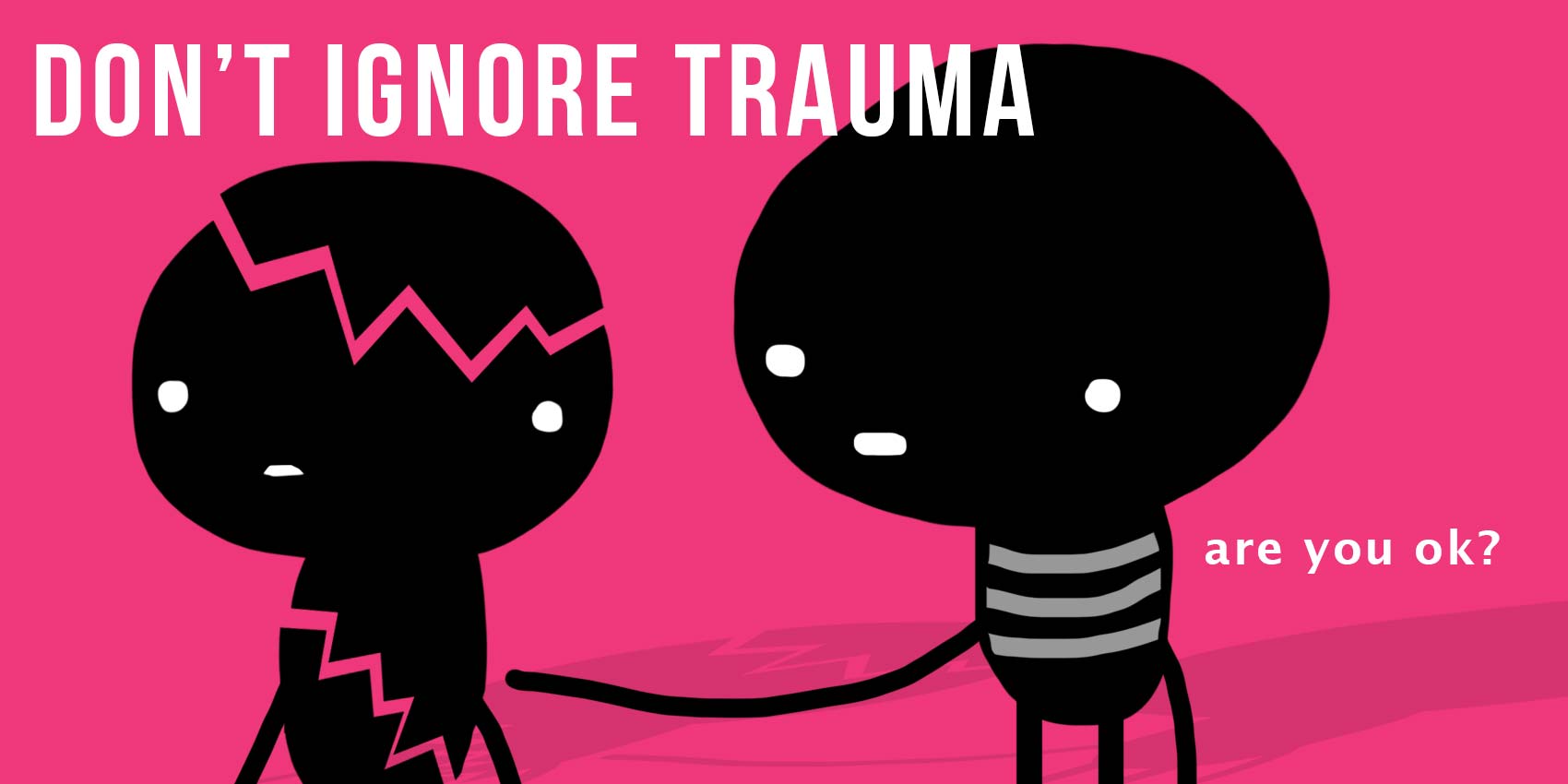27 Feb Don’t ignore trauma

Trauma can have long term effects. In fact, it can impact your brain. Trauma will impact the structure of the brain by producing and shifting chemicals. For Example, cortisol, the stress hormone, is found to be higher in people who grew up in abusive homes – they experienced repeated trauma. This is one example of how the brain changes as a result of trauma. Your brain functions differently when different chemicals are present.
Trauma also leads to more problems in life: now you’re scared, can’t sleep, can’t concentrate, have nightmares, etc. This is why you should never ignore trauma – it impacts our:
learning – yep, that means your schoolwork is affected.
behavior – indeed, you may act out some issues without even knowing it.
personality – sounds crazy, but you may even feel like a different person at times.
emotional development – sadly, we can get stuck emotionally when something traumatic happens to us.
But these consequences can be lessened when help is provided – and the sooner the better because the longer trauma survivors go without help the more chronic and severe the reactions can become. Read these two analogies to drive home this point….
When you bring home leftover pasta and meat sauce from your fave Italian restaurant, you don’t let it sit in the fridge forever. You either eat it soon or throw it away. Either way, it is dealt with and gone. If you don’t deal, it will sit there and fester, stinking up the place and growing lethal bacteria. Similarly, you need to deal with the trauma, like you deal with leftovers – don’t let it fester.
Here’s another analogy: You develop a blister on your foot from a pebble in your shoe. You are unaware of the pebble but you begin to favor the other foot, which causes you to limp. Soon the limp creates an ache in your knee and you begin to have difficulty getting to where you want to go. One day, you become aware that your knee really hurts, but you don’t connect it to the pebble in your shoe. You go to the doctor. He says you need an operation on your knee. What a pain! You fix your knee and get back to walking but now your back begins to hurt. Why? Because you put on that same pair of shoes with the pebble in it. The knee wasn’t the source of the problem; the pebble was, and until you remove the pebble, it will continue to cause problems.
The point here is that if you think you’ve experienced trauma in your life, you deserve to have that darn pebble removed from your shoe! In fact, you deserve a brand new pair of shoes! And chuck the pasta – it’s old! You deserve hot steaming new delicious pasta!
Keep reading to figure out your next steps, without the pebble;-)….




Post Question:
Do you have “a pebble in your shoe”? Care to share?
Answer the post question here
What's being said